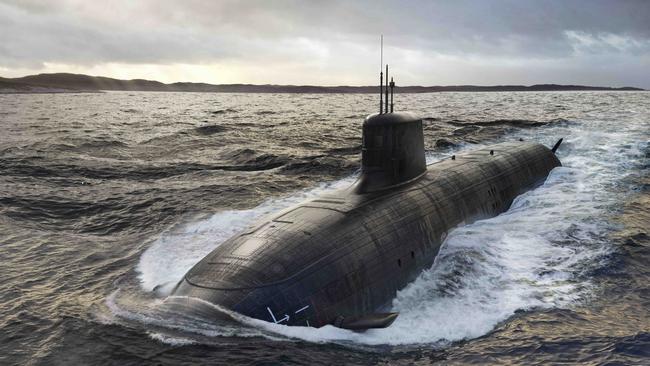AUKUS must expand critical defence tech ties with Japan and South Korea to close gap on China
China’s dominance over critical technologies sparks urgent calls to accelerate AUKUS defence research and expand co-operation with Japan and South Korea.

China’s dominance across 19 of the top 23 critical technologies – including hypersonics, electronic warfare and undersea capabilities – has sparked an urgent push to accelerate AUKUS defence collaboration and expanded co-operation with Japan and South Korea.
The Australian Strategic Policy Institute critical technology tracker report released on Tuesday reveals Beijing holds a commanding lead over Western nations even after combining the research and capabilities of AUKUS nations.
As Australia, the US and Britain strengthen critical technology partnerships to close the gap, defence strategists are promoting closer ties with key strategic partners Japan and South Korea.
The report shows the collective strength of the AUKUS countries has reversed some of China’s strategic power in autonomous systems operation, advanced robotics, adversarial AI-reverse engineering, quantum sensors and protective cyber.
“A slightly larger grouping of countries would change the picture even further. But across a number of technology areas China’s lead is so great that no aggregation of countries exceeds its share – highlighting the importance of the accelerating effect of greater collaboration between like-minded partners,” the report said.
Across 23 critical technologies, the talent tracker shows 14.2 per cent of Chinese-based experts completed their postgraduate training in the US (8.5 per cent), Britain (3.8 per cent), Australia (1.9 per cent) and EU (4.3 per cent).
“That knowledge import is highest in defence categories like hypersonic detection (AUKUS 19.5 per cent) and electronic warfare (AUKUS 17.6 per cent).”

As AUKUS nations move to diversify critical minerals processing away from China, a new report from global multi-metals giant Nyrstar reveals Australia is in the box seat to become a major global player in processing critical and strategic metals.
Nyrstar, which employs more than 1300 Australians across processing plants in Port Pirie and Hobart, said “global supply projections … show that despite increased demand for zinc and other metals, there is a significant risk of a global supply shortfall”.
The report says that over the past 20 years, “China has been the primary growth engine of demand for metals … that is starting to change”. Zinc is critical to the “functioning of low carbon and strategic technologies”, which expands the lifetime of steel and is an “essential raw material in wind turbines, solar panels and electric vehicles”.
“The metal is also used by the defence industry, where it is combined with copper to make brass alloy. Brass is utilised widely in a broad spectrum of military applications, including bullet casings and other munitions and armaments,” the report said.
“Annual demand for zinc from infrastructure and consumption, machinery and transport and consumer goods is expected to grow by a total 2.5 million to 3 million tonnes between 2020 and 2030.
“To put that figure in perspective, it is around 20 per cent of current global supply. Based on current supply forecasts we see a supply gap in zinc of up to 1.7 million tonnes a year by the end of the decade.”
The report says the shortfall is the “equivalent of 150 per cent of Australia’s current total zinc mining output”.
Nyrstar chief executive Dale Web said Australia had a “once-in-a-generation opportunity to respond to the shift in commodities demand that we are witnessing”.
The industry is pushing the government to add zinc to Australia’s critical minerals list and support processing capability for zinc supply.




To join the conversation, please log in. Don't have an account? Register
Join the conversation, you are commenting as Logout